Generator vs hybrid solar for power backup
bustergordon
5 years ago
Featured Answer
Sort by:Oldest
Comments (21)
User
5 years agolast modified: 5 years agoDavidR
5 years agoRelated Professionals
Glen Avon Solar Energy Systems · Arcata Home Builders · Phoenix Roofing & Gutters · Grafton Electricians · De Pere General Contractors · Hayward General Contractors · New Milford General Contractors · Peoria General Contractors · Riverdale General Contractors · Fairfax Handyman · Lockhart Solar Energy Systems · Elizabeth Solar Energy Systems · Freeport Solar Energy Systems · Waukegan Home Automation & Home Media · Windsor Locks Home Automation & Home MediaOliviag
5 years agoOliviag
5 years agoUser
5 years agobustergordon
5 years agoarmoured
5 years agojalarse
5 years agoarmoured
5 years agomtvhike
5 years agojalarse
5 years agochas045
5 years agolast modified: 5 years agoHU-577675900
4 years agoHeather Gray
4 years agomtvhike
4 years agoUser
4 years agoarmoured
4 years agoweedmeister
4 years agoOliviag
4 years agoBruce in Northern Virginia
4 years ago
Related Stories
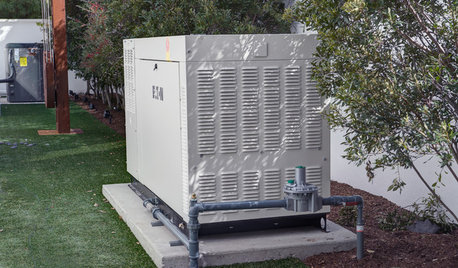
DISASTER PREP & RECOVERYMore Power to You: How to Pick the Right Generator
If your home's electricity goes, don't let it take your necessities with it — keep systems running with this guide to backup power
Full Story
GREEN BUILDINGSunlight Used Right: Modern Home Designs That Harness Solar Power
Embracing passive heating principles through their architecture, siting and more, these homes save energy without skimping on warmth
Full Story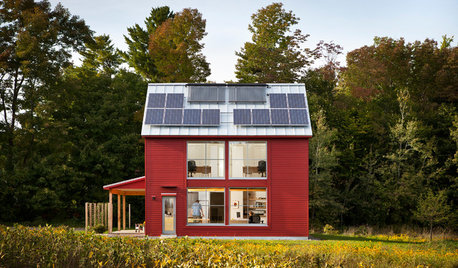
GREEN BUILDINGGoing Solar at Home: Solar Panel Basics
Save money on electricity and reduce your carbon footprint by installing photovoltaic panels. This guide will help you get started
Full Story
HOME TECHSmall Solar: Big Home Tech Trend in the Making
New technology enables everyday household objects to power themselves by harnessing natural light
Full Story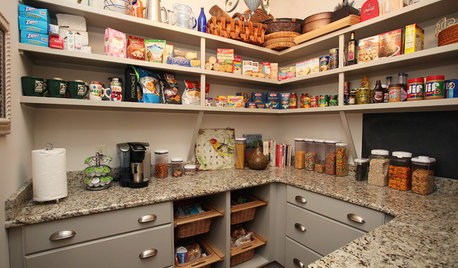
LIFEHow to Prepare for and Live With a Power Outage
When electricity loss puts food, water and heat in jeopardy, don't be in the dark about how to stay as safe and comfortable as possible
Full Story
GREEN BUILDINGOff the Grid: Ready to Pull the Plug on City Power?
What to consider if you want to stop relying on public utilities — or just have a more energy-efficient home
Full Story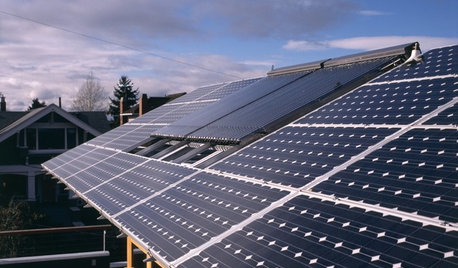
GREEN BUILDINGLet’s Clear Up Some Confusion About Solar Panels
Different panel types do different things. If you want solar energy for your home, get the basics here first
Full Story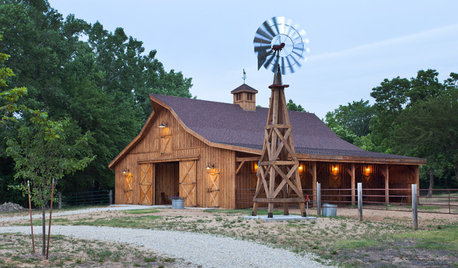
TRADITIONAL STYLEFarmhouse Style: Windmill Power Comes Around Again
Windmills helped win the West. Today these hardworking features are still winning our hearts
Full Story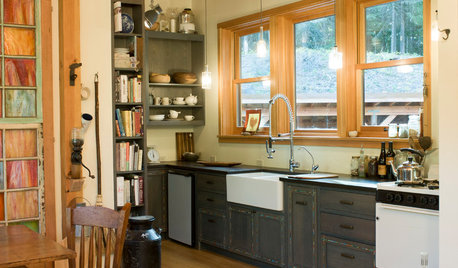
HOUZZ TOURSHouzz Tour: Off the Grid in the Remote Washington Wilderness
Not only does this house run on solar power, but it was built with it too
Full Story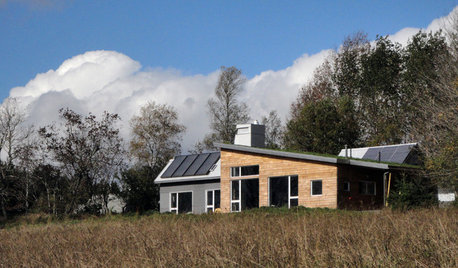
GREEN BUILDINGHouzz Tour: Going Completely Off the Grid in Nova Scotia
Powered by sunshine and built with salvaged materials, this Canadian home is an experiment for green building practices
Full Story





jalarse